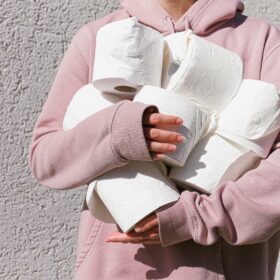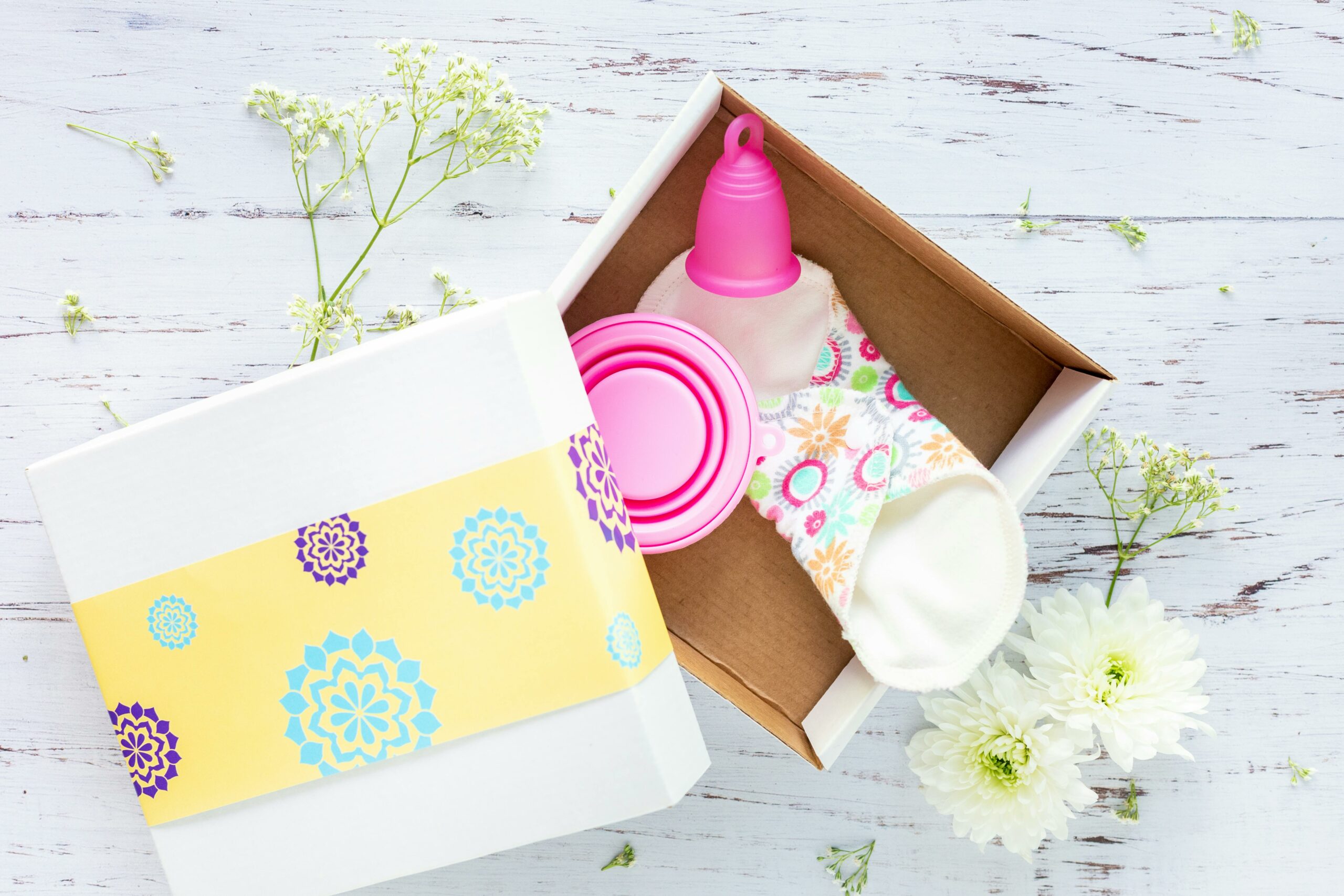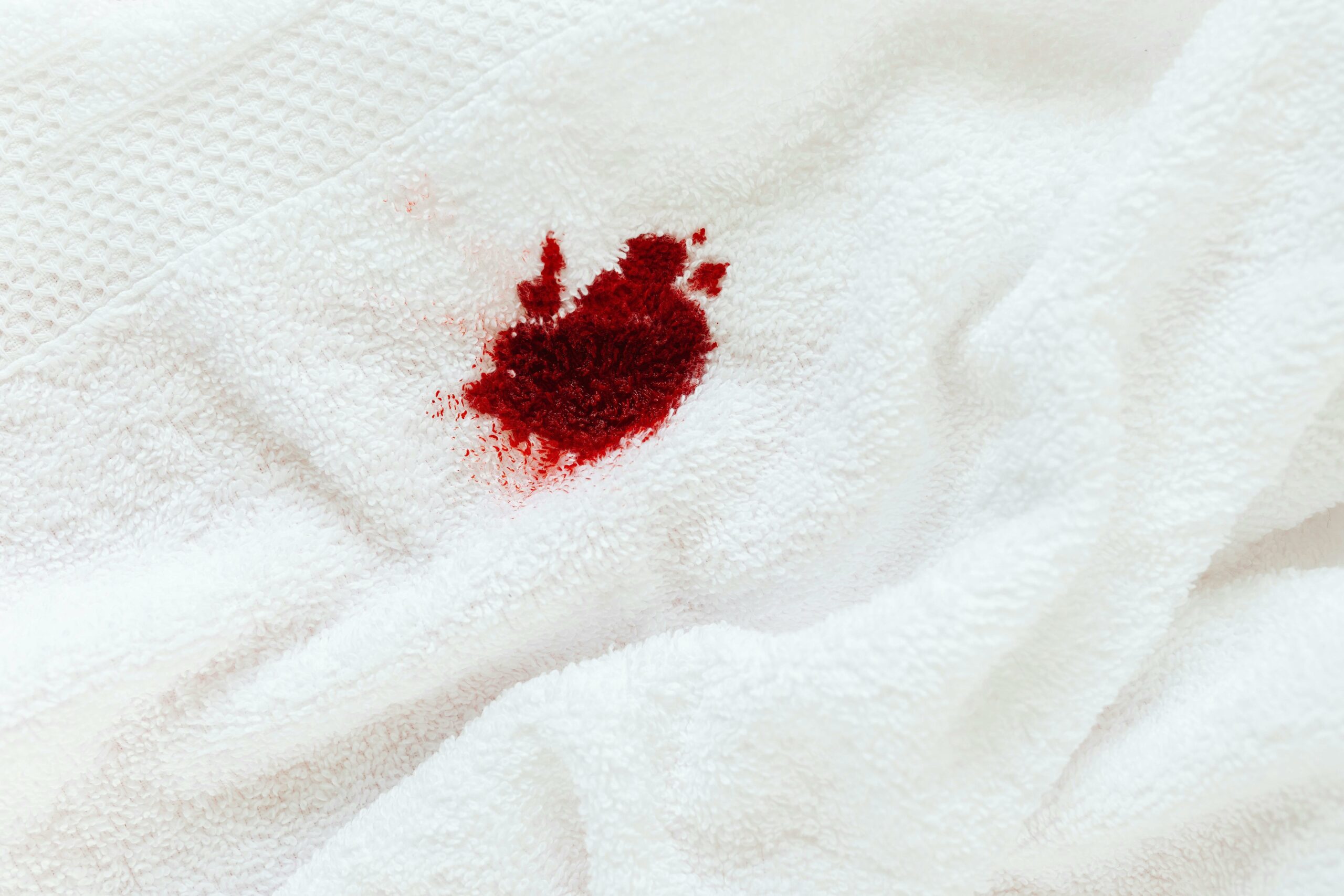
Can you go swimming on your period?
In this article
What's the lowdown?
It’s a myth that you can’t go swimming on your period
Many period products are suitable for swimming: period pants, tampons and the menstrual cup
Swimming is a form of aerobic exercise, releasing endorphins, our body’s natural painkiller – which can be great if you’re having period pain
Picture this: Summer is here! So that means, sun, sea and sand! And let’s be honest if you live in the UK, we have to make the most of our one week of sunshine. So the last thing we are going to do is let our period stop us from swimming.
Can you go swimming on your period?
Your time of the month is not a reason to cancel your water fun. It is a common myth that menstruators cannot swim on their period. We are here to reassure you that you will not leave a red trail in the pool or that a shark will sniff you out in the ocean (a very valid worry).
The science behind swimming and your period. It is all because of physics and forces. To avoid boring you, let’s keep this physics lesson short and sweet. You’ve heard of gravity, the downward force that pulls us towards the earth, keeping us anchored and not floating away. This force also has a part to play in helping our uterine lining flow out of our vagina.
When you get into a body of water, the upward pressure from the water acts against you. This is called upthrust1 and pushes against our vagina. As upthrust is a large force, it can reduce the rate of your menstrual flow. Swimming does not halt your period flow altogether, it just slows it down because of the resistance from the water2. So yes, in reality, some small amount of blood might leak if you have a particularly heavy flow or you cough/sneeze with enough pressure to overcome the upthrust. That being said, it will unlikely be noticeable in the water.
Let’s explore some period options to reduce the likelihood of leaking mid-swim.
Menstrual products for swimming on your period
Tampons
A very handy swimming option when on your period. Insert your tampon as you normally would on your period. Be sure to insert it before diving into water as the tampon would just fully absorb water if opened in water. When you are done having fun swimming, remember to change your tampon for hygiene purposes. The tampon might have absorbed some pool or ocean water.
If this isn’t an option for you, here are some alternative options on how to swim on your period without a tampon.
Menstrual cup
Menstrual cups took the period products market by storm a few years ago but little did you know the first useable cup was patented in 1937 by Leona Chalmers3. The design was not too far off the ones you see nowadays but the main difference is what they are made of. Old menstrual cups were primarily made of latex rubber but now they are mainly made of medical-grade silicone.
The cup creates a gentle seal around your cervix and collects period blood over the course of the day. It can be used for up to 12 hours before cleaning and reinsertion. Unlike tampons, the cup won’t absorb pool or ocean water as silicone is not an absorbent material. So there’s no need to rush to the bathroom to change it4. Another bonus of a cup is that the seal decreases your chances of leaking in the pool. Just remember to insert the cup before your dip!
Period swimming costume
Period-friendly swimwear is a game changer when it comes to swimming comfortably on your period. Swimwear brands, like WUKA swimwear*, are specifically designed with additional layers, with one aquaphobic layer to repel water from entering and preventing leaks. It’s been tried and tested by our own Dr Fran who was happy with the protection. Be sure to check the instructions of use for each brand as their recommendations might differ5.
*FYI – this is an affiliate link, which means The Lowdown will earn a commission on any purchases made
Tips
Tip 1: Stay away from pads
Pads are a comfortable option when it comes to period products, but for swimming we would not recommend it. As pads are made of highly absorbent materials, any moisture that touches a pad will be absorbed including period blood or water6 – meaning it could become massive in the pool! Another issue is the sticky strip of the pad. It will lose its adhesiveness and risks coming loose and slipping out. Unfortunately, we have yet to see a period pad for swimming. This is why period swimwears are a great option if you don’t feel comfortable inserting something into your vagina.
Tip 2: Natural painkiller
Swimming is a great form of natural pain relief for those irritating period cramps. Any form of aerobic exercise releases endorphins which act to reduce pain and improve our mood. In 20187, a study looked into the benefits of swimming on PMS (premenstrual syndrome) and found that swimming not only alleviated period cramps but also improved mood changes, tiredness and breast tenderness. If you were not already sold on swimming on your period, here’s another reason to convince you to take that plunge!
Dive in
Life’s too short to miss out on making memories at any point, especially because of our monthly visitor. We don’t believe in period shame here! Period products are getting more diverse and there are so many options available, from tampons to period swimwear, there is something for everyone. It might take a while to feel comfortable in the water, so go at your own pace. Try different products, and when you’re ready dive in!
If this blog gave you the answers you were looking for, subscribe to our newsletter for more timely advice and solutions to your everyday questions!
Our medical review process
This article has been medically reviewed for factual and up to date information by a Lowdown doctor.






